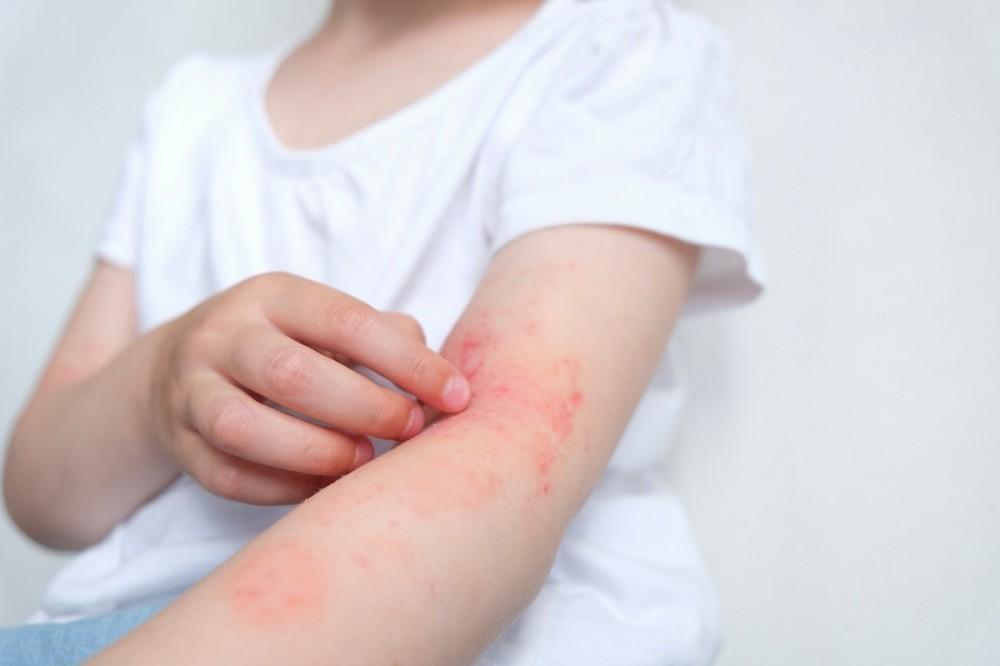
Psoriasis is a chronic, inflammatory skin condition characterized by red, scaly patches that can appear anywhere on the body. While it’s commonly associated with adults, children can also be diagnosed with psoriasis. This blog aims to shed light on psoriasis in children, including its onset, symptoms, and treatment options in pediatric care.
What is Psoriasis?
Psoriasis is an autoimmune disease where the immune system mistakenly attacks healthy skin cells, causing them to multiply rapidly. This results in the buildup of skin cells on the surface, forming thick, red patches covered with silvery scales. These patches can be itchy, painful, and sometimes even crack and bleed. Psoriasis is not contagious, but it can be hereditary, with genetics playing a significant role in its development.
Can Children Be Diagnosed with Psoriasis?
Yes, children can be diagnosed with psoriasis, though it is less common than in adults. Psoriasis can develop at any age, including infancy, but it typically appears between the ages of 5 and 15. The prevalence of pediatric psoriasis varies, but it is estimated to affect around 1% of children. The exact cause is still unknown, but a combination of genetic predisposition and environmental factors, such as infections or stress, can trigger the onset.
Symptoms of Psoriasis in Children
Psoriasis in children may present differently compared to adults. Common symptoms include:
– Red Patches with Silvery Scales: These can appear on the scalp, elbows, knees, and lower back.
– Smaller Lesions: In children, psoriasis lesions may be smaller and less scaly.
– Itching and Discomfort: The affected areas can be itchy, and scratching can lead to further irritation.
– Nail Changes: Some children may experience pitting, discoloration, or thickening of the nails.
– Guttate Psoriasis: This type, often triggered by a bacterial infection like strep throat, presents as small, drop-shaped spots on the trunk, limbs, and scalp.
Diagnosing Psoriasis in Children
Diagnosing psoriasis in children usually involves a physical examination and a detailed medical history. A dermatologist may also perform a skin biopsy to confirm the diagnosis and rule out other skin conditions, such as eczema or fungal infections. Since psoriasis can be hereditary, family history is also a key factor in diagnosis.
Treatment Options for Pediatric Psoriasis
Treating psoriasis in children requires a delicate approach, as their skin is more sensitive, and long-term treatment can have side effects. The goal of treatment is to reduce symptoms, prevent flare-ups, and improve the child’s quality of life.
1. Topical Treatments
– Corticosteroids: These are often the first line of treatment. They help reduce inflammation and itching. However, prolonged use can lead to side effects, so they are used with caution.
– Calcipotriene: A form of vitamin D, this helps slow down the production of skin cells.
– Coal Tar: An older treatment that can reduce scaling, itching, and inflammation.
2. Phototherapy
– UVB Light Therapy: Exposing the skin to ultraviolet B (UVB) light can slow the growth of affected skin cells. This treatment is usually administered under medical supervision.
– PUVA Therapy: A combination of psoralen (a drug that makes the skin more sensitive to light) and UVA light. This treatment is less common in children due to the potential long-term risks.
3. Systemic Treatments
– Oral Medications: In severe cases, oral medications like methotrexate or biologics (which target specific parts of the immune system) may be prescribed. These are typically used only when other treatments have failed due to their potential side effects.
4. Lifestyle and Home Remedies
– Moisturizing: Regular use of moisturizers can help reduce dryness and scaling.
– Bathing: Oatmeal baths and bath oils can soothe the skin.
– Stress Management: Stress can trigger or worsen psoriasis, so techniques like mindfulness or relaxation exercises can be beneficial.
While psoriasis is less common in children than adults, it can still be a challenging condition for young patients and their families. Early diagnosis and appropriate treatment are crucial in managing symptoms and improving the quality of life. If you suspect your child has psoriasis, we’d be happy to see you at our Sandy Springs office location.
To schedule a consultation with one of our five Board-Certified Pediatricians, please contact our office at 404-252-4611 or submit an appointment request via our ‘Contact Us’ form on our homepage.
